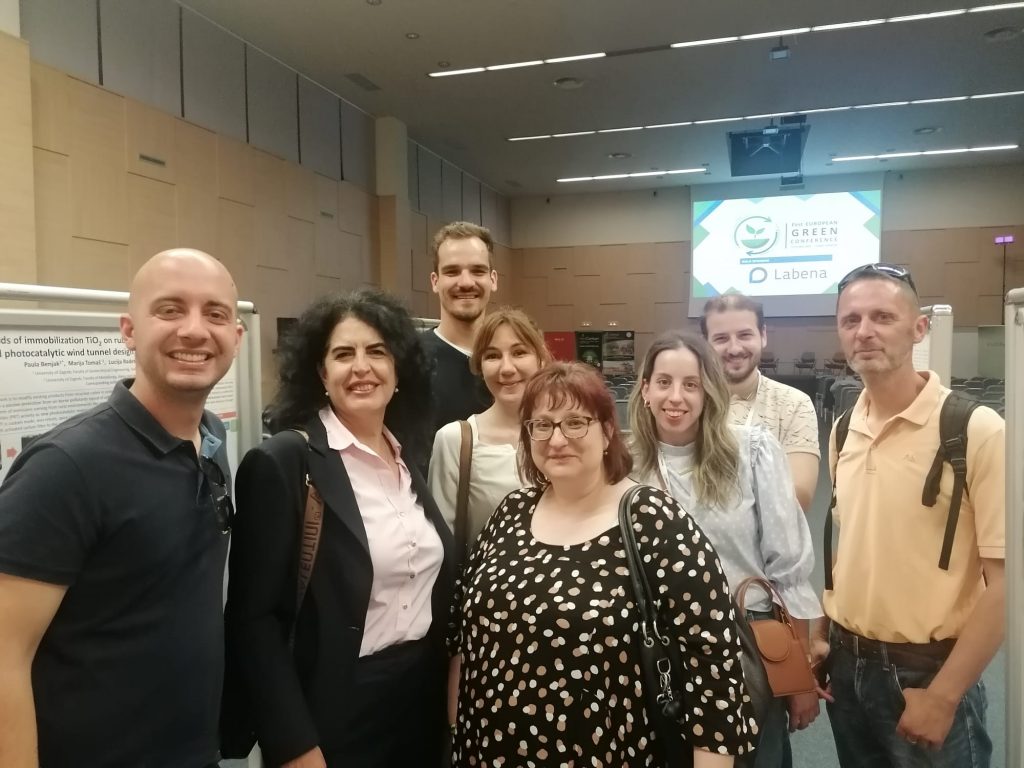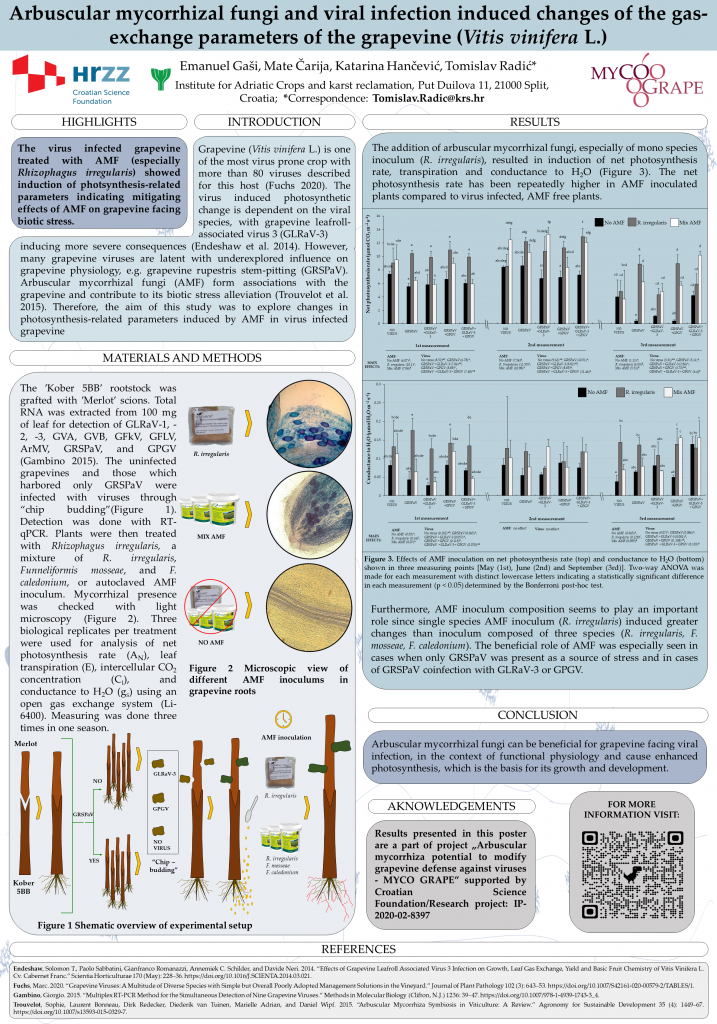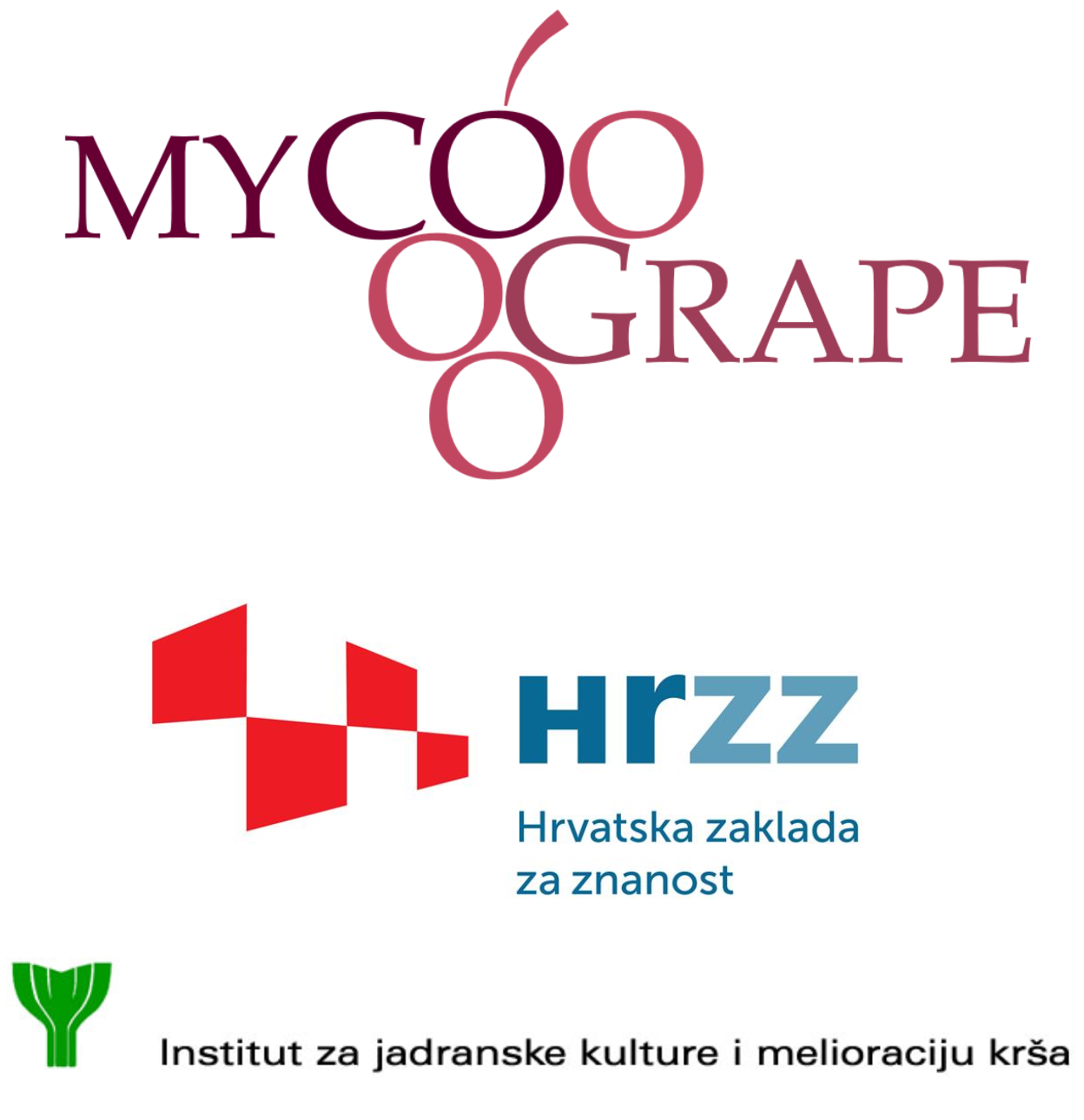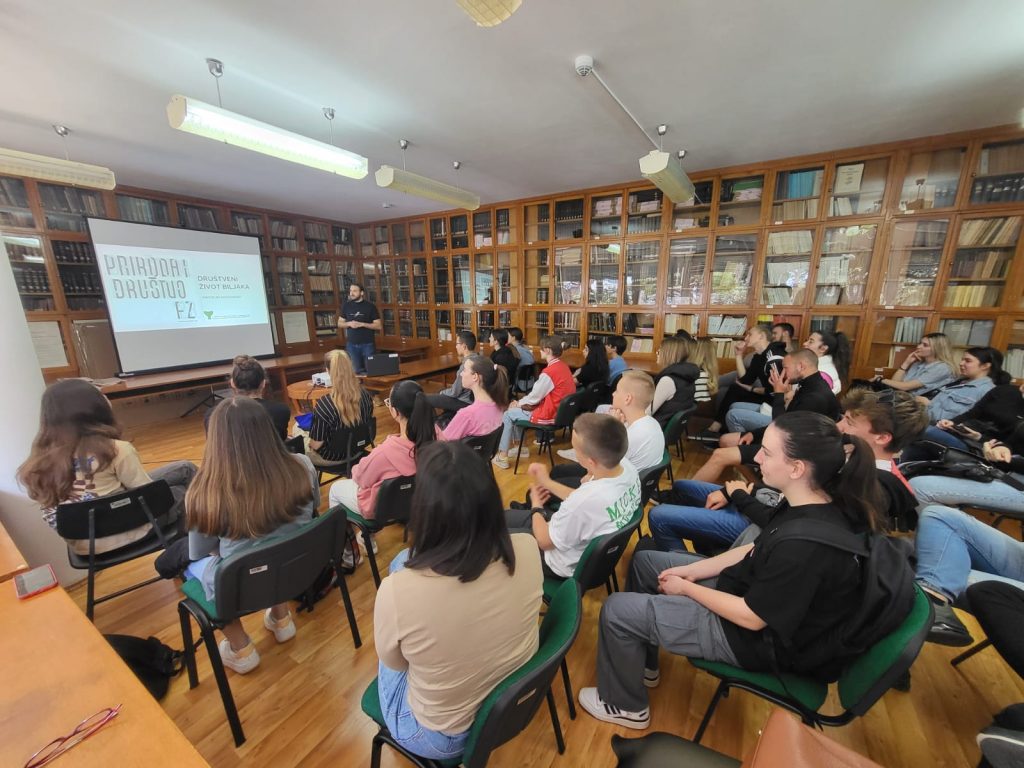The ‘MYCO-GRAPE’ team participated in the first EU-GREEN Conference in Vodice (Croatia) held on May 24th. We presented the poster on “Arbuscular mycorrhizal fungi and viral infection induced changes of the gas-exchange parameters of the grapevine (Vitis vinifera L.)”. The conference was a perfect time to catch up with colleagues and form new contacts.




























